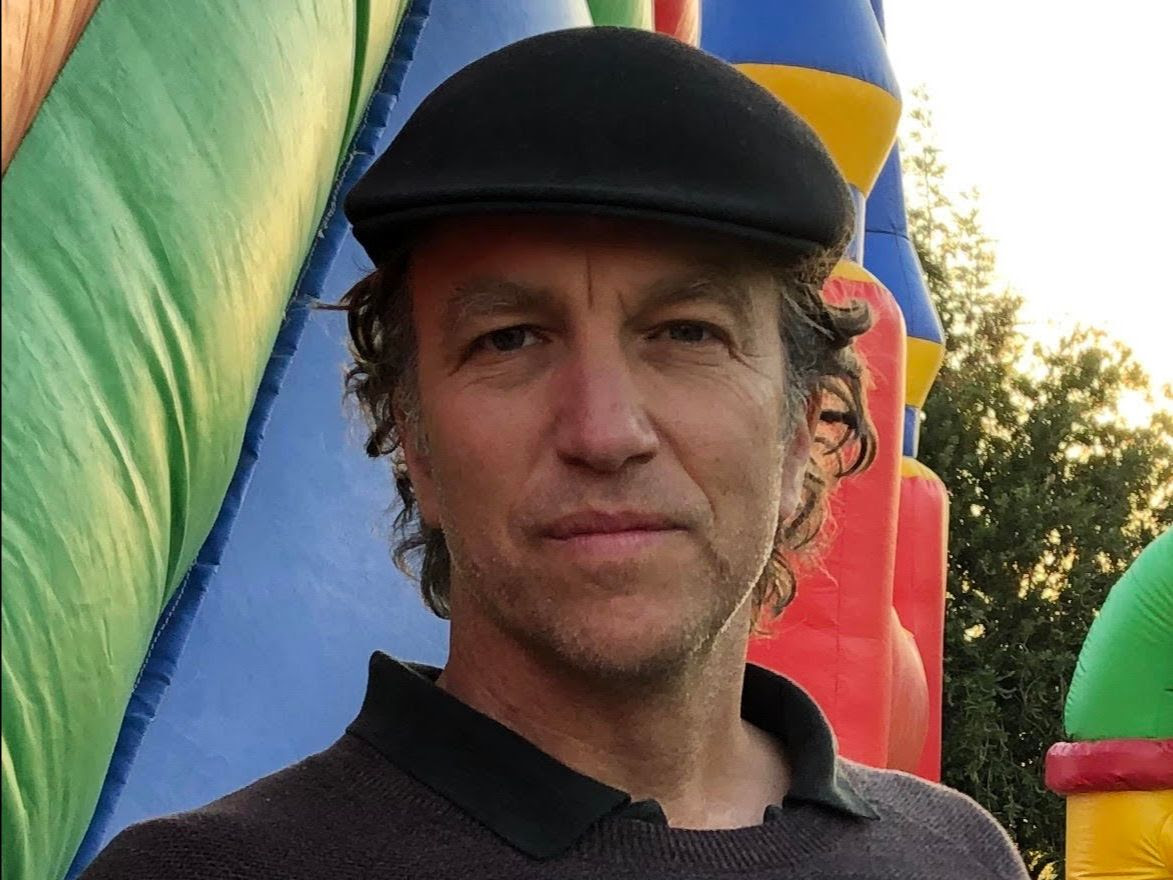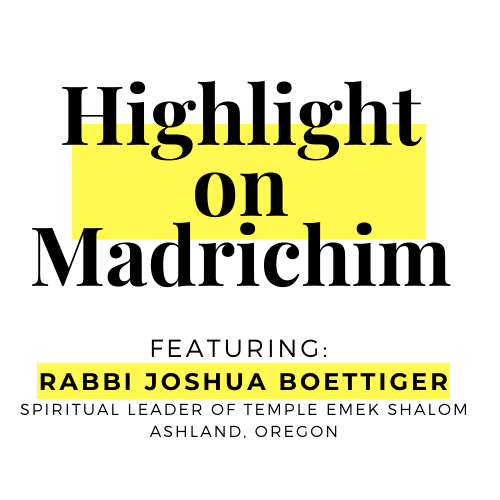Tell us a little about your spiritual/religious upbringing–were you raised with an active sense of spirituality in your Jewish faith?
I was raised by a Jewish mother and an Episcopalian father, who each had a lot of respect for the other’s tradition. It was a spiritually vibrant home. In terms of Judaism, we didn’t belong to a congregation and most of my sense of what Judaism was or could be was personal/familial and not experienced in any community context – which felt appropriate at that time. As happens with many people, it wasn’t until being in Israel at age 18 that a more conscious Jewish journey began.
How did you discover Mussar? What brought you to this study?
I discovered Mussar midway through rabbinical school when I began learning with Rabbi Stone at the Reconstructionist Rabbinical College, and soon after as part of a va’ad at BZBI. This discovery totally changed the course of seminary for me. I was thrilled by studying Modern Jewish Thought with Rabbi Stone and how he tracked that era in relationship to how the great thinkers – Buber, Heschel, Levinas – dealt with the question of responsibility for the other. I signed up for Mussar fundamentally because I wanted to keep studying with Rabbi Stone! And also because I imagined it to be a laboratory for this same question. While that was true, when I actually began the work in the va’ad, I found it pressed on me in a personal way, and asked more of me than I had imagined.
How did you meet Rabbi Stone?
Rabbi Stone has been one of my primary teachers and mentors for fifteen years now. I continue to learn fresh torah from him at every juncture, and I feel great gratitude at what he continues to give – to me personally and also to our community of Mussar practitioners here in Ashland, Oregon.
What short term or long term shifts did you notice in your life related to mussar? How has it been transformative?
Mussar was transformative for me from the beginning. As a young rabbinical student, I had made a kind of idol out of the spiritual search being holy in itself, and Mussar helped bring awareness to the self-absorpive tendencies lurking there, and the different habits I had in general that made it easier for me to justify mistreating others, or going to sleep to my responsibilities. Of course those self-absorptive tendencies are still there – sometimes they serve an important purpose and sometimes they are just a ghost, a thoughtless habit I revert to especially when I’m scared or confused. Part of Mussar being a path that I feel has such integrity is that it has given me a language to track this. On one hand, I can witness and attest to real long-term shifts in my life that Mussar has brought about. On the other hand, I’m forever cycling back to “Mussar 101” – hopefully with compassion for myself – continually learning at what sometimes seems like a glacial pace. But the difference is that it feels like in both cases there is an awareness there now, a map for understanding.
What surprised (or is currently surprising) you most about Mussar?
What continues to surprise me about Mussar is how breathtakingly relevant it is – it meets the sincere practitioner squarely in the heart of his or her life. The questions the work raises continually feel like live wires, questions our mutual lives depend on. We are witnessing Mussar developing in real-time at CCM, and we try to use that as a model for our classes and cohorts at Temple Emek Shalom, too. We ask ourselves in terms of our practices or strategies in our Mussar groups: Is this working? What would it mean or look like for this to be working? Are we actually caring for one another here; is there a felt sense of love? How can we truly help hold one another accountable while honoring and making room for each idiosyncratic Mussar journey?
When I started teaching, I was surprised at how people seemed to resonate and bring themselves so fully to doing Mussar, something that I thought of as a somewhat esoteric, not to mention demanding discipline that seemed to require so much. I think there is a real hunger in the Jewish world for true practice – where we are not simply standing on ceremony, where we can put the conceptual into form. Mussar is where the rubber meets the road.
Will you share an example of a time you applied the lessons of Mussar to your life?
I continually go back to what I think of as core Mussar teachings that were gifted to me by Rabbi Stone and Dr. Trey and others. For instance, the insistence on the mystery of the other and how that mystery both commands and invites. We often have an idea of what someone in our life wants or expects from us, but that is often based on our assumptions from the past. Mussar has led me to ask my parents: how can I serve you – at this time in our lives – in a way that you actually want to be served? Nowhere is Mussar more alive to me than in my relationships with my wife and daughter. Mussar helps me to see how my sometimes overbearing opinion of how our marriage should be threatens the reality of how our marriage actually is. Mussar continues to help me break unconscious patterns of projection and blaming.
Mussar gives us a tool chest of middot and practices, but ultimately it requires present moment awareness. We don’t know what each moment or relationship will call for until we are there in that room, with that person, in that scenario. For me, Mussar and Jewish Meditation have grown in my life simultaneously and informed each other so often that I cannot imagine one practice without the other.
How have you seen Mussar be transformative for your students or members of your congregation? Was there resistance to the training?
I am amazed and grateful at how Mussar has been transformative in the lives of our students here, and the ripples we have seen as a result in our larger community. We have seen some of our advanced students become madrichim, we have seen a real deepening and willingness to grow from everyone.
And there is always resistance that I find both in myself and in others – I wouldn’t trust it if there wasn’t! It manifests differently for different folks. Sometimes it is interpersonal conflict within the va’ad. Some of our crew have struggled with studying the classical Mussar texts. Some have struggled when we began to transition from the kibbush to the tikkun model. The resistance feels necessary because it helps all of us to build trust in this medium and in each other.
What is it about the way CCM teaches mussar that is particularly resonant/unique/innovative? With so many other mussar groups available, why have you chosen the CCM model?
I find in CCM both an intellectual honesty and a spiritual rigor. CCM offers a Mussar journey that is grounded in a real lineage: from the Mussar masters of old to contemporary innovations from different fields. There is also a willingness to experiment, to be wrong, to grow, to be part of a collective unfolding where many voices are at the table.
Joshua Boettiger is the spiritual leader of Temple Emek Shalom in Ashland, Oregon. He is a graduate of the Reconstructionist Rabbinical College in Philadelphia (2006), is a Rabbis Without Borders Fellow, and has an MFA in Poetry from Pacific University (2018). He runs the Mussar program at Emek Shalom, and also teaches Jewish meditation and co-leads twice yearly silent retreats. He lives with his wife, Rabbi Vanessa Grajwer Boettiger, their daughter, Paloma, plus one dog, one cat, and seven chickens.


